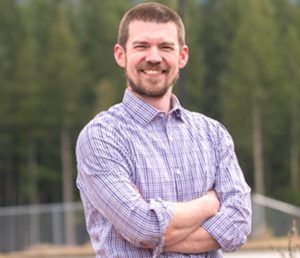- CHAMBERS PLAN
- LOVELOCAL
- WHY SQUAMISH
arrow_drop_down
- MEMBERSHIP
arrow_drop_down
- DIRECTORY
arrow_drop_down
- EVENTS & TRAINING
arrow_drop_down
- RESOURCES
arrow_drop_down
- ADVOCACY
arrow_drop_down
- ABOUT US
arrow_drop_down
- CONTACT
Guest Blog – Federal Election – Defending Democracy is Our Job
Read our latest guest blog from Doug Munroe (Politics and Strategic Studies, Quest University Canada). Doug moderated the Squamish 2018 municipal election All Candidates Meeting and is working with the Squamish Chamber on the 2019 federal election All Candidates Meeting.
Defending Democracy is OUR Job
Doug Munroe
After a blossoming in the 1990s and early 2000s, democracy now seems to be under threat around the world. Tyrants abroad hold sham elections and then claim that they are democrats, while foreign governments exploit the openness of our society to sow anger and mistrust. The greatest threats to democracy aren’t tyranny or foreign meddling, however; they are apathy and cynicism. With Canada’s forty-third federal election now underway, we shall soon see if these forces have grown stronger here, as they have in established democracies elsewhere (Brexit, anyone?). A democracy that is not weakened by apathy and cynicism can shrug off even the most toxic of Russian internet trolls. Defending our democracy against those real threats is up to us.
Democracy can be hard; apathy is easy. In BC, it’s especially easy to think that federal politics is something that happens far away, done by people who are very different from us. It’s easy to think that it’s something we only interact with through a screen, by reading the news or watching sound bytes on TV. Politics is actually something that happens where we live. It’s done by people who aren’t that different from us. It’s something that we can interact with by picking up the phone whenever we feel like somebody ought to be doing something about an issue we think is important – whatever that issue may be. (Abandoned vessels in Howe Sound? Climate change? Jobs? Taxes? Housing? Take your pick.)
Cynicism is also easy, particularly if you decide to remain willfully ignorant about the reality of politics. Why bother voting, say the cynics, when an individual vote doesn’t matter? Maybe elsewhere, but in Canada, each vote matters: Half of the ridings are typically won by a margin of less than 15% to 18% of the vote. That means that half of the seats in Parliament – more than enough to make the difference between being in power and being in opposition – are up for grabs every time. And, as we have seen in our riding, even supposedly “safe” seats can change hands. It is not unusual for Canadian elections to be decided by a few hundred votes or less! Yours could be one of them. (blog continues below)
Along with our fellow Canadians in communities across the country, our choices will shape our country for the next four years.
Why bother voting, say the cynics, when all the choices are basically the same professional politicians? So far, there are four candidates running to represent us in this riding. They aren’t the much-derided (but mostly mythical) “professional politician”. All of them are regular folks: Community members who feel like there are important challenges that our country needs to deal with; challenges that are too big for any one town or province. They, and the political parties they stand for, are not all the same: They have very different priorities and very different ideas about how to address some of those challenges. We decide which of these candidates will work for us as our representative in Parliament. Along with our fellow Canadians in communities all across the country, our choices will decide which of these different visions for Canada will shape our country for the next four years. Whatever you think the most important challenge is, you’ve got a choice about who is going to tackle it, and how.
Democracy is much bigger than elections, and keeping apathy and cynicism at bay is not just a once-every-four-years responsibility. Electing somebody is just the beginning; once they are in office, they work for us – and they genuinely care about what we think. Like anyone, they value feedback and direction (and not just because they often want to be re-elected!) It’s up to us to give it to them.
So, on October 2nd, come and meet the people who want to work for us at the local All Candidates Meeting.
On October 21st, vote for one of them.
On October 22nd, and any day afterwards, let our new Member of Parliament know when you agree with them, and when you disagree. Be opinionated, be loud, be engaged – just don’t be apathetic. Our democracy will be stronger for it.

Doug Munroe
Doug’s research is broadly focused on politics and strategic studies, including security policy, terrorism and counterterrorism, intelligence studies, political violence and strategic studies.
Doug currently teaches a range of courses at Quest University Canada, such as Global Perspectives, Politics of Cyberspace, Peacebuilding, Gender/Politics, Comparative Political Institutions, Canadian Political Strategy, and Topics in Security Studies.
Views and opinions expressed in guest blogs are those of the author(s) and do not necessarily reflect the official position or advice of the Squamish Chamber of Commerce.

